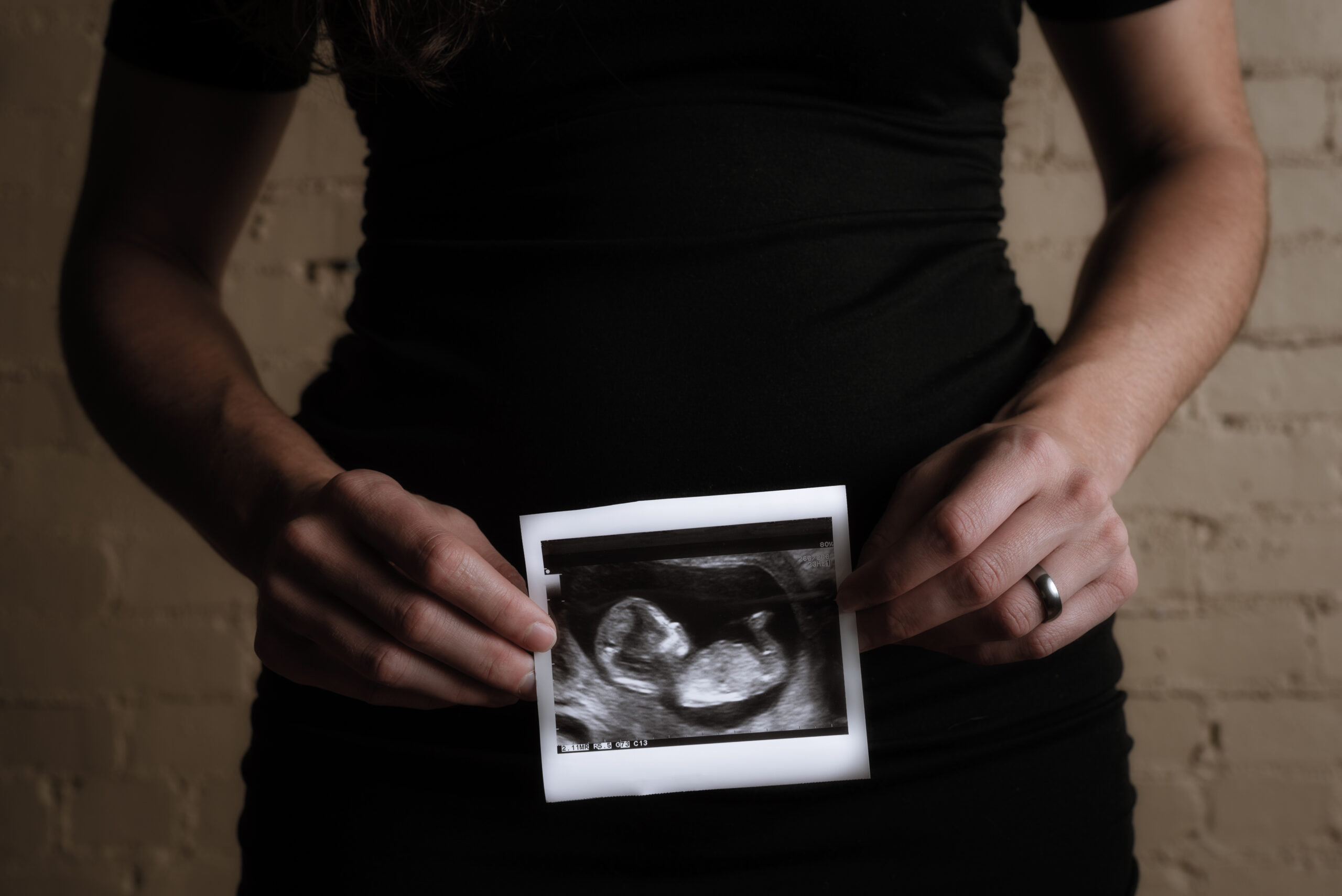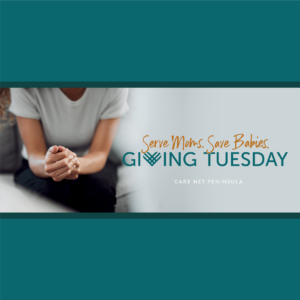
Year-End Update: Cadie’s Story
Cadie’s story may have turned out differently if it hadn’t been for your support this year.

We all have questions as we await the Supreme Court’s decision in the Dobbs v. Jackson Women’s Health case. Recently, Colleen Holcomb, a local attorney and member of the Care Net family, wrote a blog post that details the situation from a pro-life legal perspective. It provides some history, insights, and a look ahead at what comes next for abortion across the country and here in Virginia.
As pro-life Americans, in many ways, we are living in the days we have been praying for: the day the news declares that Roe v. Wade is dead!
Although it is not yet official, a leaked draft confirmed to be authentic indicates that a majority of the Supreme Court has voted to overturn Roe v. Wade and Planned Parenthood of Southeastern Pennsylvania v. Casey. These two cases have supported the Supreme Court’s claim that the U.S. Constitution contains a right to abortion.
Indeed this is great news! But, tragically, the battle to protect the unborn is far from over.
The legal situation surrounding abortion is confusing even for Constitutional legal scholars. The following is just a brief overview of the history of federal abortion law, a description of the current legal landscape, and actions pro-life Americans can take to keep defending innocent life.
In its 1973 Roe v. Wade decision, the Supreme Court claimed that the Fourteenth Amendment to the Constitution contains a “right to privacy” and that this right to privacy guarantees a right to have an abortion.
Because of this determination, the Court established a policy (which is not the Court’s job) dictating what kinds of regulations states were allowed to impose on abortion during each of the three trimesters of pregnancy. Roe prohibited the states from placing restrictions on abortion during the first trimester.
The Supreme Court expanded protection for abortion in the 1992 decision Planned Parenthood of Southeastern Pennsylvania v. Casey. In Casey, the Court left in place the Roe Court’s claim of a constitutional right to abortion but rejected the trimester framework. The Court in Casey held that any state restriction on abortion before “fetal viability,” meaning the time the baby could live outside the mother’s womb, must not pose an “undue burden” on a woman seeking termination of her pregnancy. This decision and its intentionally vague language empowered the abortion industry to successfully challenge most regulations on abortion at any stage of pregnancy.
On May 2, 2022, Politico published a leaked draft opinion in Dobbs v. Jackson Women’s Health Organization. In Dobbs, the Supreme Court considered the constitutionality of a Mississippi law that prohibits abortion after fifteen weeks, the gestational age that current scientific data indicates that an unborn child can feel pain.
The draft opinion indicates that most of the Justices have voted to overturn Roe and Casey, and the idea is music to pro-life ears!
Writing for the majority, Justice Samuel Alito finally acknowledged:
“Roe was egregiously wrong from the start. Its reasoning was exceptionally weak, and the decision has had damaging consequences. And far from bringing about a national settlement of the abortion issue, Roe and Casey have enflamed debate and deepened division.”
Sadly, no. Through the Dobbs decision, the Supreme Court has determined that the Constitution does NOT contain a right to abortion. So, no federal “law of the land” requires states to allow abortion. But similarly, there is no federal law requiring states to protect unborn life. Therefore, in the absence of a federal right to or prohibition of abortion, the legality of abortion falls to the states, as it was before Roe.
Justice Alito explained in his draft opinion why it is more constitutionally appropriate for abortion policy to be determined by the states:
We hold that Roe and Casey must be overruled. It is time to heed the Constitution and return the issue of abortion to the people’s elected representatives.
Justice Alito then quotes the late, imminently pro-life Justice Scalia’s words from his dissenting opinion in Casey:
The permissibility of abortion, and the limitations upon it, are to be resolved like most important questions in our democracy: by citizens trying to persuade one another and then voting.
Immediately following the leak, pro-abortion leaders in the Senate attempted to pass a law that would have enshrined Roe in federal law by establishing a federal right to abortion at all stages of pregnancy, even to the moment of birth.
The Senate currently has a pro-abortion majority, so if the law had been brought to the Senate floor for a vote, the law would have passed. But thankfully, Senate procedural rules require a sixty-vote threshold to invoke “cloture,” meaning to end discussion of any proposed legislation and move to a final vote. Praise be to God; enough Senators opposed the legislation to keep it from moving to a vote.
Federal Legislators on both sides of the aisle are advocating abortion legislation to protect life and to require abortion. So, we need pro-life Americans to stay engaged!
Here are just some pending pro-life federal bills to watch and encourage your Congressional leaders to support:
Twenty-six states have existing laws on their books or pending legislation ready to pass once the Dobbs decision becomes official that will ban abortion either entirely or within the first few weeks of pregnancy. Sadly, Virginia is not one of them. Virginia law currently allows abortion through the first and second trimesters of pregnancy.
In recent years, Virginians passed several laws to protect women and empower them to choose life, but when a pro-abortion majority took control of the General Assembly in 2020, they eliminated these protections.
However, a pro-life majority regained control of Virginia’s House of Delegates in 2021, and the pro-abortion majority holds the Virginia Senate by just one vote. If pro-life Virginians can build on those gains in 2023, we have an opportunity to save lives. Governor Glenn Youngkin has stated that he will support a twenty-week ban on abortion.
Now is an exciting time to engage in conversation about life. According to recent polling:
Despite what the media tells us, abortion is not popular with a majority of Americans.
Now is the time for pro-life Americans like yourself to get involved in the discussion, voice your support for life, continue to pray, fast, march, vote, and MOST IMPORTANTLY, continue to partner with organizations like Care Net Peninsula to support the mothers and fathers facing unplanned pregnancies. Let everyone know that we are not just pro-birth but pro-abundant life!


Read More News Updates

Cadie’s story may have turned out differently if it hadn’t been for your support this year.

I want to start by saying thank you. Your support this year has helped save lives. In fact, we saved more babies from abortion in 2024 than any year in our history. Every prayer, every gift, every moment you’ve stood with us —it’s all made a difference.

But there’s one service that seems to many of our donors as, well, mysterious. We use words like “safe space” and “lovingkindness” when we discuss our services, but what exactly is this thing we call an “Options Counseling Session?”

Click to read our latest ministry update and how TWO failed abortion attempts could equal life for a baby girl.
© 2025 All Rights Reserved | Care Net Peninsula
Care Net Peninsula is a 501(c)3 non-profit. We provide the help and hope local women need to choose life for their baby.